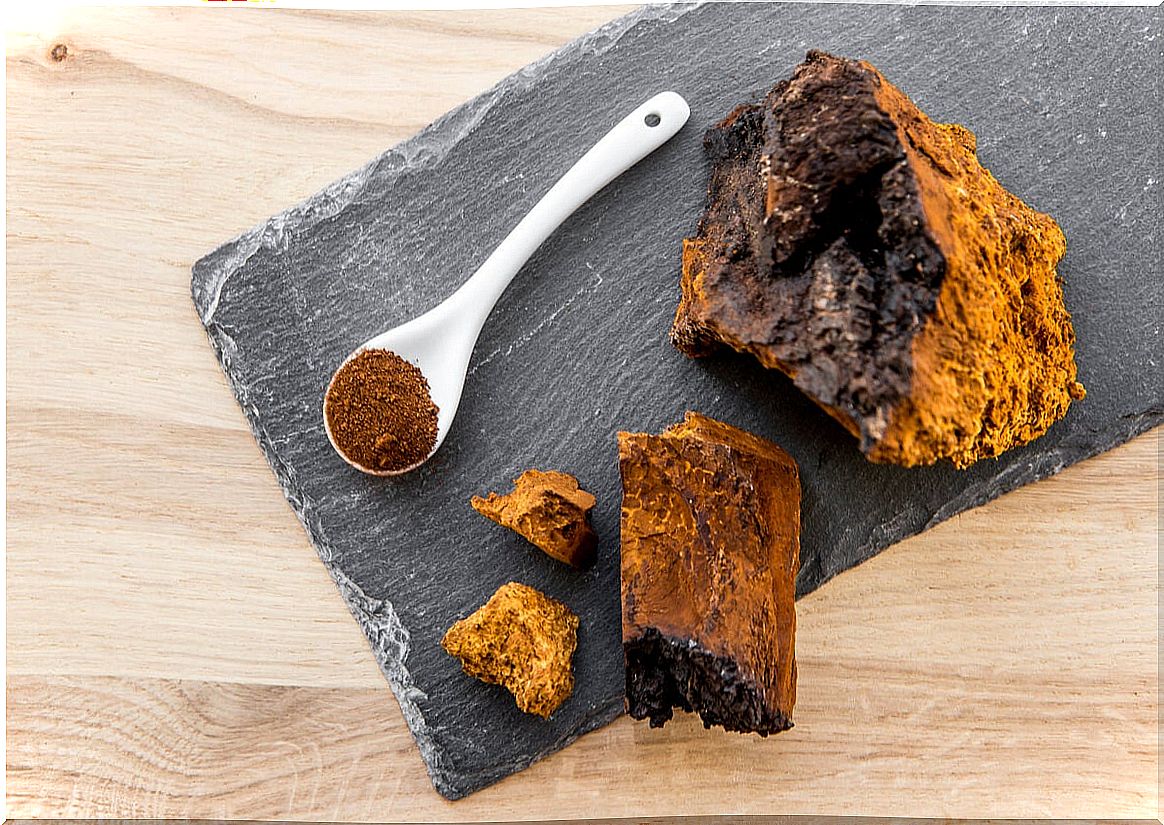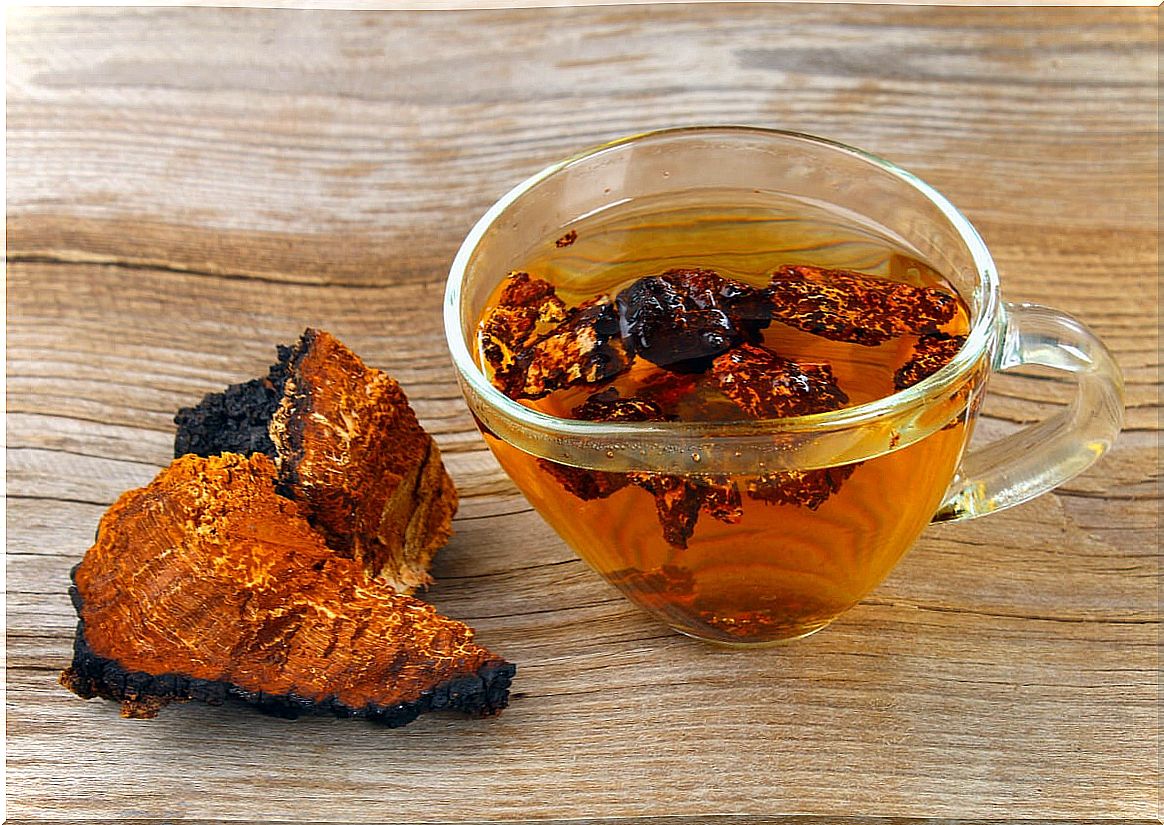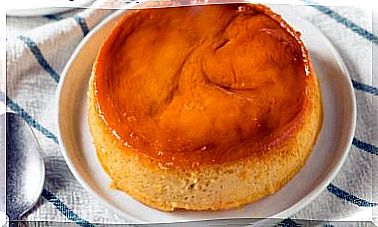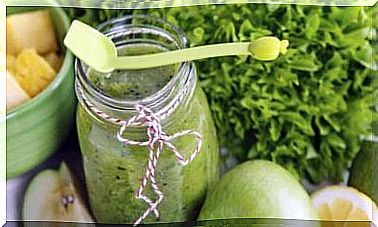Chaga Mushroom: Benefits And Precautions
The chaga mushroom has become popular as a nutrient-dense food, ideal for health care. What does the evidence say about it? In this opportunity we will tell you.

The chaga mushroom, whose scientific name is Inonotus obliquus , is a parasitic fungus that usually grows on the bark of birch trees in cold climates such as Russia, Canada, Siberia, northern Europe, and Alaska.
It is also known by names such as “black mass,” “clinker polypropylene,” or “cardboard nose,” as it produces a woody growth that resembles burnt charcoal. However, it has a soft orange core inside.
According to an article published in Biofactors , the extracts obtained from this fungus have antioxidant, antibacterial, antiallergic and anti-inflammatory potential. For this reason it has become popular as a medicinal supplement. What is it for?
Chaga mushroom benefits
For hundreds of years the chaga mushroom has been used medicinally in Siberia and Asian countries. In particular, it stands out for its ability to stimulate the immune system and promote well-being. According to a publication in the International Journal of Molecular Sciences , this is due to its content of betulinic acid derivatives and melano-glucan complexes.
In addition, it is a source of phenolic compounds and polysaccharides that give it important benefits. For example, they help to stimulate the intestinal microbiota, since they cause changes towards a profile of healthy bacteria. Added to this, it has other positive effects on health. Let’s see.
Anti-inflammatory and immunomodulatory
In animal studies, the chaga mushroom was helpful in promoting the formation of beneficial cytokines. They are responsible for regulating the immune system, since they stimulate white blood cells. Therefore, this ingredient is said to be helpful in preventing the presence of pathogens in the body.
These investigations have also determined that chaga inhibits the production of harmful cytokines, which are associated with high levels of inflammation and disease. In a study reported in the Journal of Ethnopharmacology , extracts of the fungus reduced inflammation and intestinal damage in mice by stopping the activity of inflammatory cytokines.

Regulator of glucose levels
It is not a cure for diabetes, nor is it a first-line treatment. But, as a study shared in Food and Chemical Toxicology exposes , the chaga mushroom has hypoglycemic and antioxidant activity. For now, research has been done mainly in animals.
According to the findings, the extracts of this mushroom lower blood glucose levels and insulin resistance. However, moderate use and under professional supervision is advised, as it is unknown whether it safely causes these effects in humans. In addition, there is a risk of possible interactions with diabetes drugs.
Possible lowering of high cholesterol levels
The concentration of antioxidants in chaga seems to explain this benefit. An 8-week study in rats with high cholesterol showed that the extract of this fungus favors the reduction of high levels of bad cholesterol (LDL), total cholesterol and triglycerides.
Similar results were found through the Journal of Ethnopharmacology . According to research, these extracts not only lower bad cholesterol levels , but also increase the presence of good cholesterol (HDL) in the blood. Still, more human studies are needed.
Antitumor activity
To date, the chaga mushroom has not been approved as a treatment for cancer. Although marketing was responsible for promoting it as an ally against this disease, the truth is that there is not enough evidence to draw solid conclusions about its antitumor potential.
Still, animal and test-tube studies have shown promising results. For example, research revealed by Phytotherapy Research determined that chaga extract was helpful against colon cancer cells.
Meanwhile, a study in Heliyon resulted in a 60% reduction in tumor size in mice. There is also evidence on its preventive capacity against cancer of liver, lung, breast and prostate cells.
How is the chaga mushroom consumed?
It should be considered that the chaga mushroom is not a superfood. Therefore, its consumption does not replace the benefits of a healthy and balanced diet. Neither is it a substitute for medical treatments nor is it a cure for pathologies. For prudent use, it is best to consult your doctor.
Nowadays it is possible to find chaga supplements in specialized herbal stores. It is usually available in small pieces that are dipped in water to make an infusion. There are also capsule and powder presentations. The suggested dosage is usually indicated by the manufacturer.
Chaga mushroom precautions and possible side effects

Chaga mushroom supplements should be used with caution, as they are not regulated by the US Food and Drug Administration (FDA). Furthermore, given the lack of studies in humans, its safety level and appropriate dose are unknown with certainty. In fact, it has been determined that it may interact with some medications.
Therefore, it should be avoided by people who have a prescription for insulin or who are undergoing treatment for diabetes. You also have to be careful if you are taking anticoagulant, antiplatelet drugs or drugs for the immune system.
Pregnant or lactating women, as well as people with chronic diseases, should avoid the use of derivatives of the fungus. Any doubts in this regard should be resolved with the doctor.
What is there to remember about the chaga mushroom?
The chaga mushroom has a long history as a medicinal supplement. It is valued for its anti-inflammatory, antioxidant, and antibacterial properties. However, to date there is little evidence on its safety and efficacy in humans. Because of this, it should be used with caution.
In case of illnesses or being under medical treatment, it is best to consult before taking this product. On the other hand, despite the publicity it has been given, it should not substitute for drugs. Keep that in mind!









